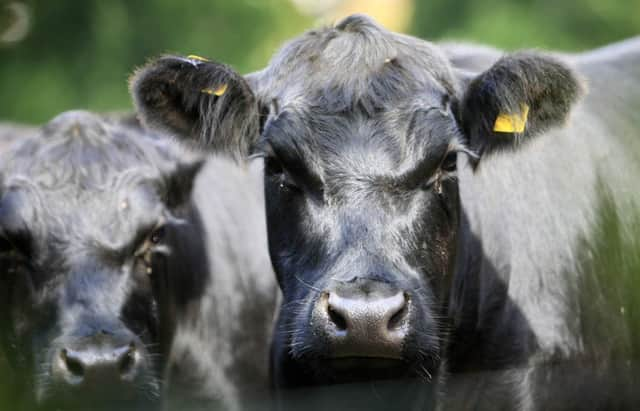Some farmers displaying a '˜cavalier attitude' to standards


The publication of the report follows an independent inspection by Criminal Justice Inspection Northern Ireland (CJI) which examined the role played by the former Department of Agriculture and Rural Development’s Central Investigation Service (CIS) and the Veterinary Service Enforcement Branch (VSEB) in protecting against error and fraud while ensuring compliance with agriculture regulations and animal welfare laws.
While the report does not recommend any strategic changes, it does highlight a number of areas for improvement. It also recognised the benefits now DARD and the Northern Ireland Environment Agency (NIEA) have come together as DAERA.
Advertisement
Hide AdAdvertisement
Hide AdCommenting on the report, James Corrigan, Deputy Chief Inspector of Criminal Justice in Northern Ireland, said: “Farming and food production makes a significant contribution to the Northern Ireland economy and in 2014 alone, sales from the agri-food sector were valued at £3.9 billion.
“Most farmers and food producers have a deep commitment to the land and the standard of food that is produced, however there are a small number who display a cavalier attitude to standards, procedures and animal welfare.
“Therefore it’s important the public have confidence in how this industry is operating, and in the standards and quality of animal welfare and food production that are in place.”
Mr Corrigan said the inspection revealed a dual approach to securing compliance was applied when appropriate by both inspection teams. This involved a combination of inspection and warnings along with court prosecutions.
Advertisement
Hide AdAdvertisement
Hide Ad“While links between the farming community and staff working within the CIS and the VSEB were strong, Inspectors found no evidence these links presented a conflict of interest or that investigations were subject to inappropriate internal or external influence,” said Mr Corrigan.
“Fieldwork showed that staff members working within both the CIS and VSEB were aware of the potential for perceived conflicts of interest to occur and in both organisations, appropriate processes were in place to manage these reputational risks.”
Mr Corrigan continued: “We suggest that data analysis around inspection and enforcement work by community background and section 75 categories as well as divisional offices, would provide additional assurance around the equitable manner in which this work is carried out.”
The report also identified opportunities for further cooperation, data sharing and joint operations as a result of the merger of the Northern Ireland Environment Agency and its Environmental Crime Unit within DAERA to target prolific and serious offenders operating under the guise of farming enterprises.
Advertisement
Hide AdAdvertisement
Hide Ad“Inspectors have identified a number of areas for improvement which would strengthen existing policies and practice and provide further assurances that investigations and enforcement action was undertaken in an equitable way,” concluded the Deputy Chief Inspector.
The report confirms that measuring success is difficult, however it shows a noticeable decline in the number of referrals from DARD. These referrals were at a high of 116 in 2012/13 to just 15 in 2014/15.
The report provides a detailed breakdown of Veterinary Service Enforcement Branch (VSEB) investigations and the resulting convictions between 2012 and 2015.
A total of 863 investigations were carried out over the period resulting in 314 warning letters being issued and 115 convictions achieved through the courts. In 132 of the cases compliance was achieved with 224 cases ultimately being dropped.
Advertisement
Hide AdAdvertisement
Hide AdIdentification, registration and movement issues were the standout reasons for court proceedings. Of 53 cases between 2012 and 2015 there were 48 convictions with five cases being dismissed.
Animal welfare matters resulted in 29 cases being taken to court with 26 convictions.
The report also provides details of the number of businesses which saw deductions for non-compliance with Statuatory Management Requirements.
Deductions for non compliance with SMR 7 (Cattle movement registration) saw £889,050 deducted from a total of 526 businesses.